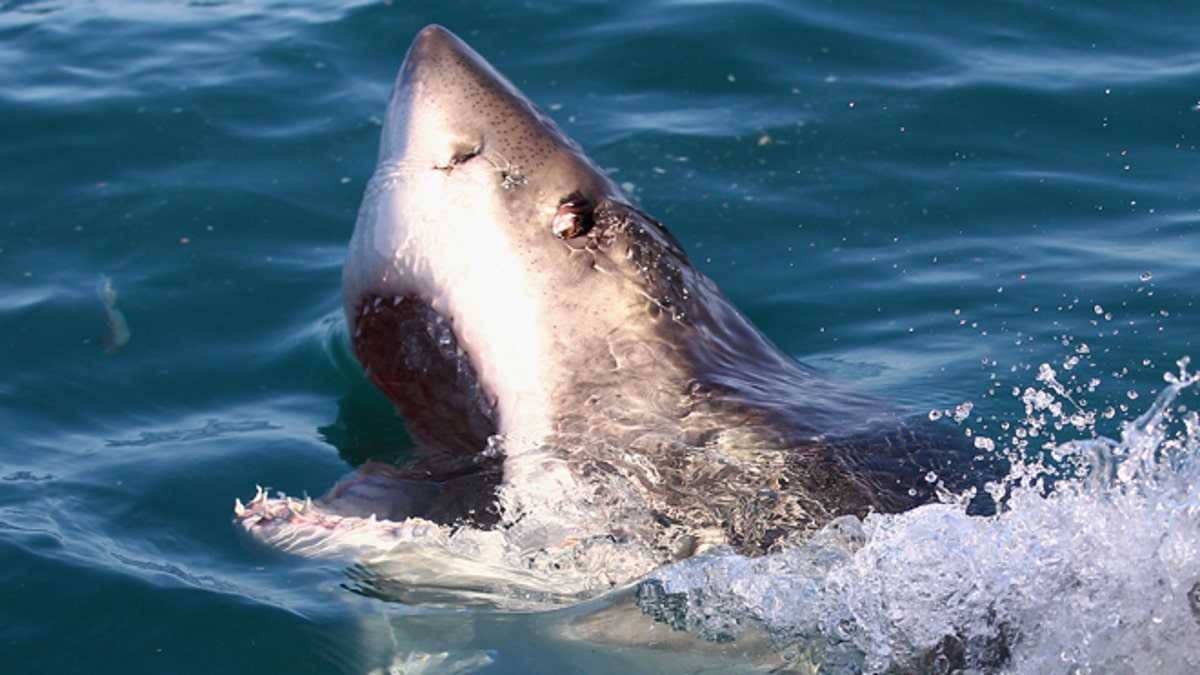
Shark attacks have doubled across the globe in the last 20 years, but the rate of attack remains low, new research has found. (File photo of a Great White Shark) (2010 Getty Images)
Shark attacks across the globe have doubled in the last 20 years, according to a recent study.
The study, published Wednesday in PLOS ONE, was the first statistical analysis of shark attacks worldwide and looked at attacks from 1960 to 2015.
While the statistics seem staggering, researchers clarified that the rate of attack is still low and the likeliness of someone getting attacked varies based on location.
SHARK POPULATION GROWING OFF CAPE COD SPURS ‘NIGHTMARES’ FOR RESEARCHER
Stephen Midway, an assistant professor with the Department of Oceanography and Coastal Sciences at Louisiana State University, led the research and said the increase in shark attacks is less about a rise in dangerous sharks and more about growing human populations along the coasts.
“As development increases along the coast and in beach communities, more residents and tourists frequent these waters. With more people in the water, the chance for a shark attack increases,” Midway explained in a statement.
“However, I must stress the fact that not all places across the globe saw an increase. And even in the places where we saw an increase, the chances were still one in several million,” he added.
Midway and his colleagues used data from the International Shark Attack File at the University of Florida’s Florida Museum of Natural History to complete their analysis.
FLORIDA FISHERMEN REEL IN MASSIVE GREAT WHITE SHARK IN RARE CATCH: ‘I’M SPEECHLESS’
Using time series models in 14 countries — more specifically, regions within the U.S., Australia and South Africa, which had the highest rates of shark attacks — Midway and his team found that shark attack rates have doubled over the last 20 years in highly populated areas such as the East Coast and southern Australia.
Even with increased attacks, the rates remained low. Over the 55-year period of the study, Midway found there were only 1,215 shark attacks in the U.S. and only 24 of those were fatal.
Most of the other attacks resulted in minor skin injuries, similar to dog bites.
“We ought to think of the risk of a shark attack like we would think of the risk of a car accident. For example, we don’t assess our personal risk of getting into a car accident by the national statistics on car accidents year over year. We think about our specific car, the weather, the road conditions and other very local factors,” Midway said.
Midway, who typically studies fish ecology, was inspired to look into the subject after a series of shark attacks were reported in North Carolina in 2015.
“I was curious what the likelihood of shark attacks is in a certain number of years at different places around the world,” Midway said.
“While shark attacks are often reported in numbers, we factored in the regional human populations to determine the rate of shark attacks worldwide. I think this information could contribute to a more scientifically grounded discussion about sharks in general and help with the management and conservation of them,” he continued.








































